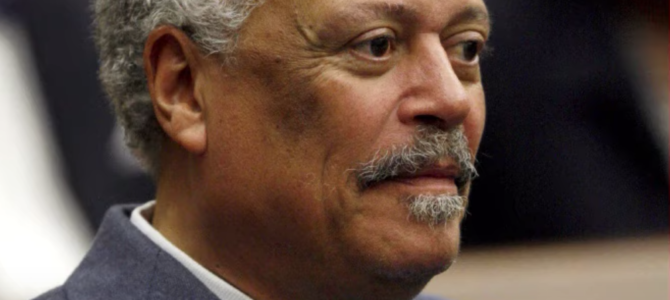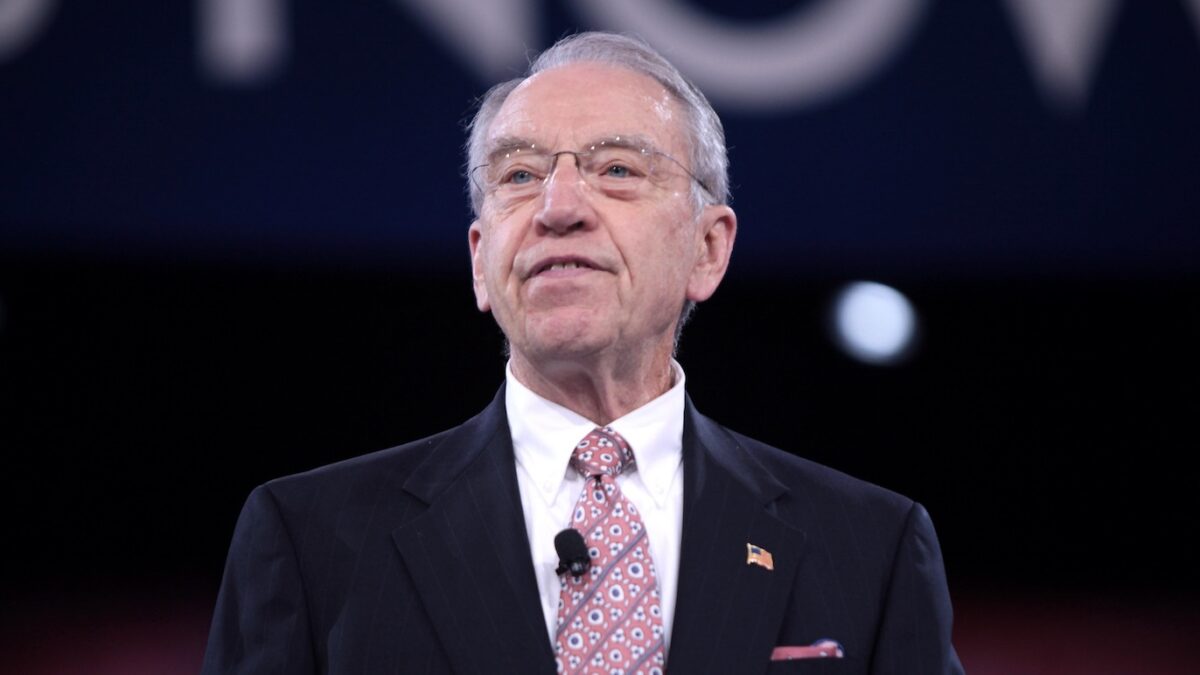
Make no mistake about it, Wednesday’s decision granting a writ of mandamus compelling U.S. District Judge Emmet Sullivan to grant the government’s motion to dismiss the disgraceful prosecution of Lt. Gen. Michael Flynn was a sharp rebuke of Sullivan.
Although couched in judicious language, the majority opinion leaves no doubt that Sullivan’s actions, including both his refusal to grant the government’s dismissal request and his appointment of a clearly biased “friend of the court” to argue for Flynn’s continued persecution were not just wrong but a fundamental abuse of our system of government.
The story of this sorry episode is well known by now. After initially pleading guilty to making false statements to the FBI, Flynn tried to withdraw his guilty plea, arguing he was innocent and that the government had coerced him into pleading guilty by threatening to indict and ruin his son.
The government ultimately changed its position after an independent investigation revealed what the appellate court called “newly discovered evidence of misconduct by the Federal Bureau of Investigation.” The original prosecutors were removed from the case, and the government filed a motion to dismiss the charges against Flynn.
In an unusual move, however, Sullivan made clear he was unwilling to allow that, appointing John Gleeson as a “friend of the court” to argue against the government’s motion. Sullivan’s unprecedented actions had been foretold in a December 2018 hearing when he made his personal feelings clear.
In that hearing, he basically accused Flynn of being a traitor, saying, “Arguably you sold your country out.” Sullivan questioned why the government had not charged Flynn with treason, proclaiming, “I’m not hiding my disgust, my disdain.”
Flynn’s new lawyer, Sidney Powell, asked the U.S. Court of Appeals to order Sullivan to grant the government’s request to dismiss the case.
Sullivan Violated the Constitution
In another highly unusual move, last Wednesday the appeals court issued a writ of mandamus, ordering Sullivan to dismiss the case against Flynn.
To appreciate the severity of the appellate court’s rebuke, it is necessary first to understand how extraordinary this ruling is. To obtain a writ of mandamus ordering a judge to take certain action, a defendant must show not merely that the judge made a mistake, but that he basically had no discretion. Successful mandamus petitions are only granted when the right to relief is “clear and undisputable.” Most lawyers never obtain or even seek one in their entire careers.
The court of appeals’ decision was grounded on Sullivan’s violations of the Constitution. The separation of powers among the three branches of government is central to our constitutional form of government. One branch may not encroach on the rights of the other coequal branches. The discretionary decision to charge or not charge a defendant with crimes is a quintessential function of the executive branch, acting through the Department of Justice.
Sullivan’s attempt to seize the power to decide whom to prosecute was an unabashed and unconstitutional power grab. The court of appeals said, “The district court’s order put two coequal branches of the Government … on a collision course.” As the court noted, the judiciary’s role to question such decisions is confined to “extremely limited circumstances in extraordinary cases” and requires an “extraordinary showing of harassment of the defendant or malfeasance such as bribery.” Flynn’s was not such a case.
By attempting to usurp the Justice Department’s decision not to continue Flynn’s prosecution, the court made clear that Sullivan had violated the Constitution’s core separation of powers principle. Although polite and judicious, the court’s language leaves no doubt about what it called “The novelty of the district court’s usurpation of power.”
In similarly strong language, the court described Sullivan’s actions as “unprecedented intrusions on individual liberty and the Executive’s charging authority.” Translation: There was no basis for this unconstitutional power grab.
Court Goes out of Its Way to Rebuke Sullivan
The appellate opinion is replete with other rebukes of Sullivan’s actions, calling them “clear legal error,” “irregular,” and “unprecedented,” and saying it was “crystal clear” that Sullivan lacked the authority to do what he did. It noted that Sullivan’s argument to the contrary “conflicts with black letter law.” For those unfamiliar with the phrase, “black letter law” is judge-speak for “any first-year law student should know this.”
The court also directed sharp criticism at Sullivan’s revolutionary decision to appoint “one private citizen [Gleeson] to argue that another citizen should be deprived of his liberty regardless of whether the Executive Branch is willing to pursue the charges.” This was the “first troubling indication” of Sullivan’s “judicial usurpation of executive power.” When a federal court of appeals tells a lower court judge that he has usurped the power of the president, that is not just disagreement over a technical point; it is a reprimand of the highest order.
In the same vein, the court described Sullivan’s open-ended invitation to the president’s opponents to weigh in with support for the Flynn prosecution as “suggest[ing] anything but a circumscribed review.” When an appellate court admonishes a trial judge that his actions are far removed from a “circumscribed review,” it is the equivalent of telling him he has forsaken his role as an impartial arbiter.
The court’s criticism of Gleeson’s appointment was not essential to the court’s decision about Sullivan’s violation of the constitutional separation of powers. By including those observations, the appellate court was sending a clear signal of its disapproval of these untoward actions.
The court of appeals gave Sullivan a patina of cover by not disqualifying him from presiding over what should now be a routine and perfunctory dismissal hearing. Sullivan, however, has created more uncertainty by canceling a previously scheduled hearing.
He now has a choice. He can obey the order from the appeals court. Or he can continue his unconstitutional attempt to seize more power — power not authorized by the Constitution — by seeking to overturn the court’s opinion and continuing the unlawful persecution of Flynn.









